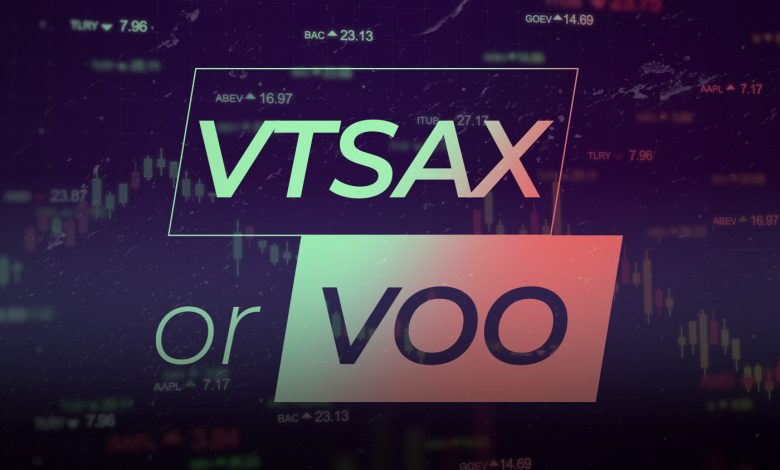VTSAX or VOO? Which is Better: Investing in 2023
Investing is an extremely challenging and lengthy process. Many options may need to be evaluated, including considering the right options, conducting research and paying attention to risks. People who lack time and knowledge may prefer to invest in funds that require less attention. Index funds are the most preferred in this regard.

Investing is an extremely challenging and lengthy process. Many options may need to be evaluated, including considering the right options, conducting research and paying attention to risks. People who lack time and knowledge may prefer to invest in funds that require less attention. Index funds are the most preferred in this regard.
Investing in index funds has become increasingly popular among individual investors in recent years. Depending on the recent investments, one of the most debated topics in this area is whether to invest in VTSAX or VOO.
We will provide you with an in-depth comparison of these two funds. At the same time, we will try to help you make an informed decision on which one is better for your investment objectives. It is better to first understand the system.
Let’s Understand Index Funds
Before examining VTSAX and VOO, it is important to understand what index funds are and how they work. Index funds are a type of mutual fund or ETF that aims to track the performance of a specific index, such as the S&P 500.
They are designed to allow investors to invest in a diversified portfolio of stocks or bonds at a low cost. Unlike actively managed funds, index funds don’t try to get ahead of the market. They aim to match its performance so that you win alone.
VTSAX vs. VOO
VTSAX (Vanguard Total Stock Market Index Fund) and VOO (Vanguard S&P 500 ETF) are index funds offered by Vanguard. VTSAX tracks the performance of the CRSP US Total Market Index, which includes virtually all US stocks.
VOO tracks the S&P 500 Index of 500 large-capitalization U.S. stocks.
What Are The Differences?
One of the main differences between VTSAX and VOO is their investment strategies. VTSAX aims to provide investors with exposure to the entire US stock market, including small and mid-cap companies.
VOO focuses only on large-cap companies. This can be explained by the fact that VTSAX can provide more diversification, while VOO can be less volatile due to its focus on larger companies.
It is possible to compare the two funds in terms of performance. First, both funds have a strong track record. Over the last decade, VTSAX has returned an average of 14.07%. VOO has returned 14.04% on average. However, it is important to remember that past performance does not guarantee future results
Factors to Consider When Choosing an Index Fund
There are several factors to consider when deciding between VTSAX and VOO. The first one is the fees. VTSAX has an expense ratio of 0.04% while VOO has an expense ratio of 0.03%. This means that VOO is slightly cheaper than VTSAX, but the difference is minimal.
Another factor to consider is diversification. VTSAX provides exposure to the entire US stock market, while VOO focuses only on large-capitalization companies. If you are looking for more diversification, VTSAX may be a better option.
Investment objectives and risk tolerance are also important considerations. VTSAX may be more suitable for investors with a long-term horizon who are willing to take more risk, while VOO may be better for those who are more risk averse.
Which One Should You Invest In?
Investing in VTSAX or VOO is relatively easy. Both funds can be purchased through a brokerage account or retirement plan. Once you have purchased the fund, it is important to regularly monitor and manage your investment. Periodically rebalancing your portfolio can help ensure that your investment is aligned with your goals and risk tolerance.
Investing in index funds can be an excellent way to achieve your investment goals. When deciding between VTSAX and VOO, it is important to consider factors such as fees, diversification and investment objectives.
Ultimately, the decision should be based on your personal preferences and risk tolerance. We strongly recommend that you do your own research before making any investment decision. At the same time, your own research will not always yield clear results. It is also extremely important that you seek the support of a professional who works in this field.


![Saving $2,000 Monthly: How to Make it a Habit [2023]](/wp-content/uploads/2023/04/Saving-2000-Monthly-How-to-Make-it-a-Habit-2023-390x220.jpg)

